Minsk Forum XX – Berlin: Belarus and the War – How Firm is Russia’s Grip?
Minutes of the panel discussions and a presentation
I. Europe Siding with Belarus: Roadmap for Further Support of Democratic Movement
II. Current State of the Economy in Belarus, Impact of Sanctions and Prospects for Development
III. Society: Understanding Belarus — Belarusian Identity, incl. Presentation of a New Study
Minsk Forum XX consisted of two one-day conferences in Lithuania and Poland, a roundtable discussion with MPs in Belgium, and a closing conference in Germany. The last event was held in person on 1 December at the Berlin Office of the Friedrich Ebert Foundation. The recordings of the entire conference series are available at the YouTube channel of the German-Belarusian Society.
01 December Berlin
Belarus and the War:
How Firm is Russia’s Grip?
The conference was opened with welcoming remarks by representatives of the organising party Dr Sabine Fandrych (Secretary General, Friedrich Ebert Foundation Berlin) and Dr Hanna Stähle (Chair of the Board, German-Belarusian Society), as well as high-level politicians Dr Tobias Lindner (Minister of State, Foreign Ministry of Germany) and Valery Kavaleusky (Representative for Foreign Affairs in the United Transitional Cabinet of Belarus).
Minister Lindner pointed out that despite the involvement of the Lukashenka regime in the attack on Ukraine, Germany distinguishes between Belarus and Russia and will continue to calibrate the sanctions applied to both countries.
Mr Kovalevsky reminded the audience that the EU provides extensive support to the Belarusian civil society and applies sanctions to the Lukashenka regime, but could do more on reducing Russian influence in Belarus. After the opening speeches, the politicians answered several questions from the audience. These touched upon the sudden death of the former foreign minister of Belarus Vladimir Makei and the practical meaning of the EU’s declared non-recognition of Lukashenka’s legitimacy.
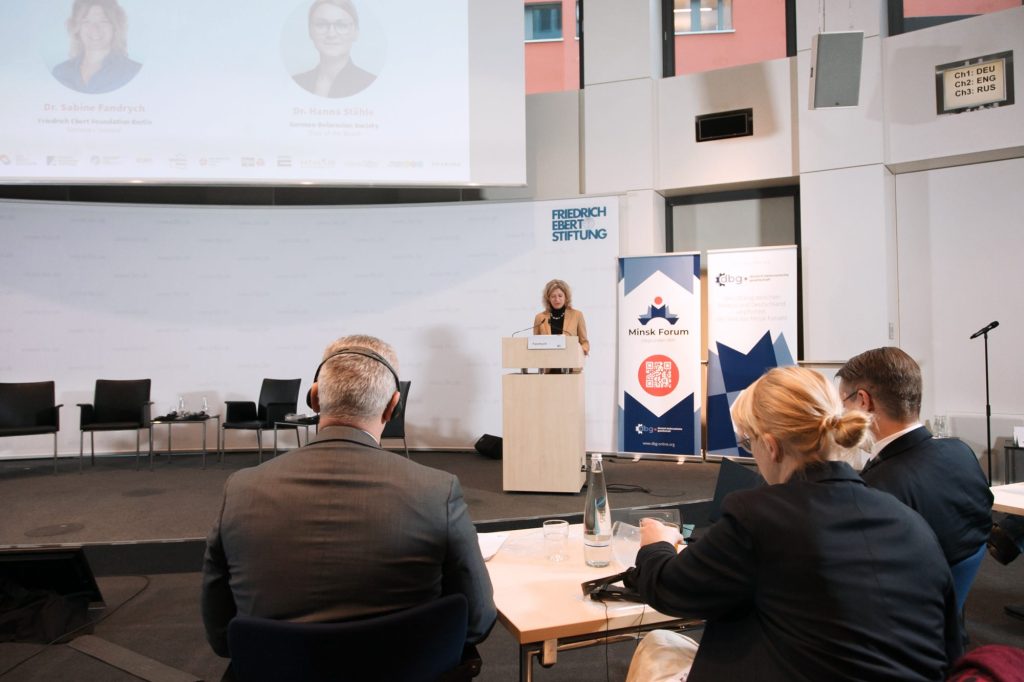
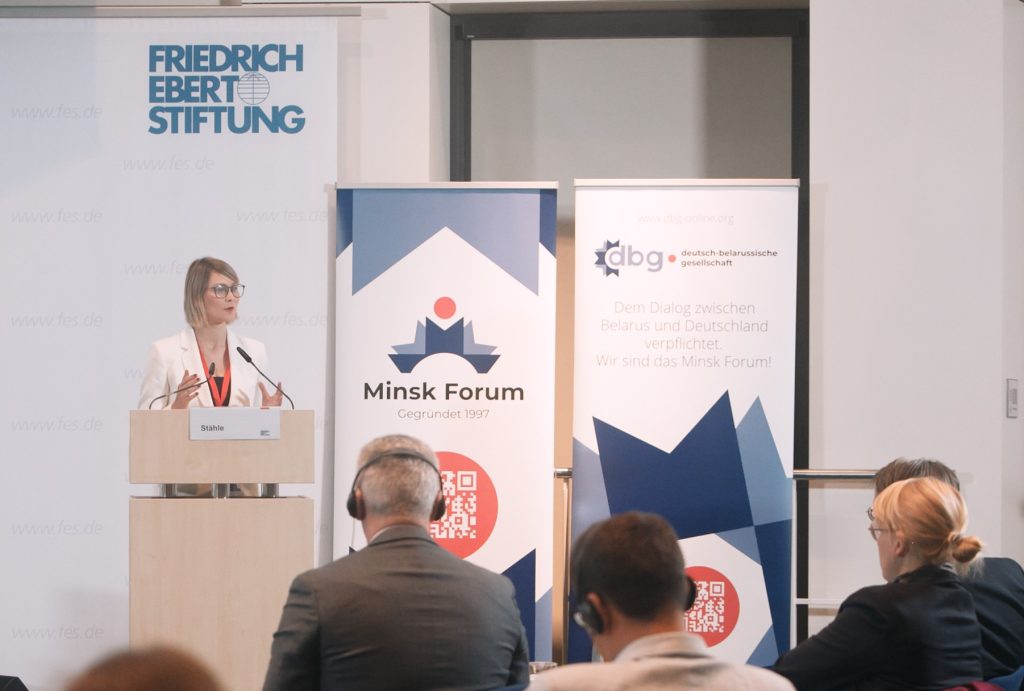



Panel discussion I — Politics
Germany and Europe Siding with Belarus: Roadmap for Further Support of Democratic Movement
Knut Abraham (MdB CDU, Member of the German Parliament) and Dr Nils Schmid (MdB SPD, Member of the German Parliament) were invited as panellists. The discussion was moderated by Katsiaryna Kryzhanouskaya from Deutsche Welle, Belarus-Team. However, the panel seemed to rather be a conversation than a discussion, since the parliamentarians did not so much present alternative views as complement each other.

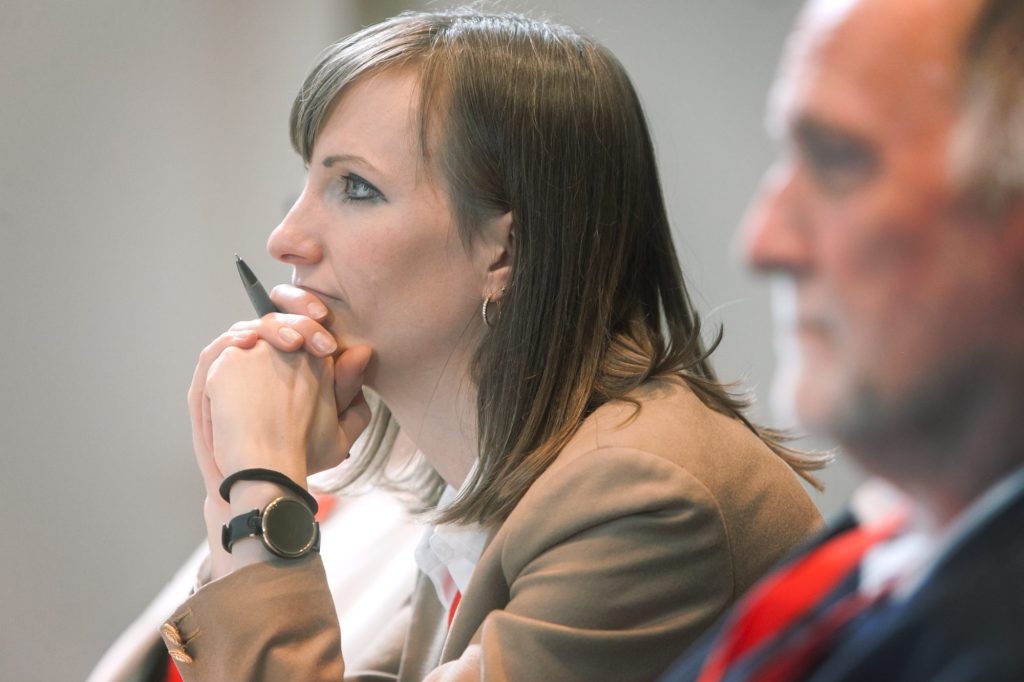
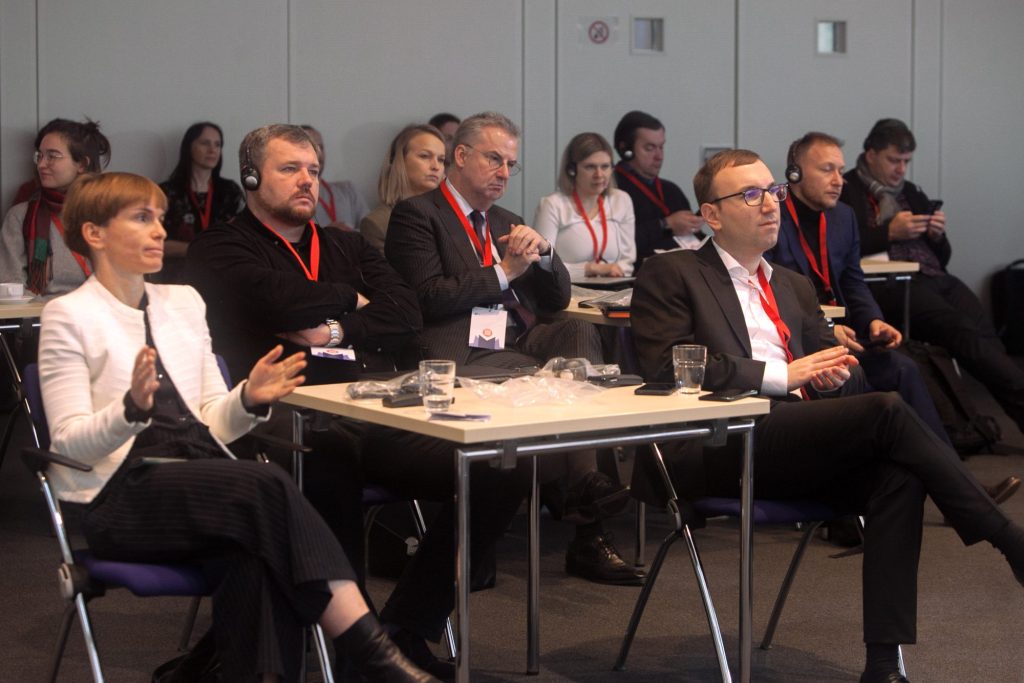
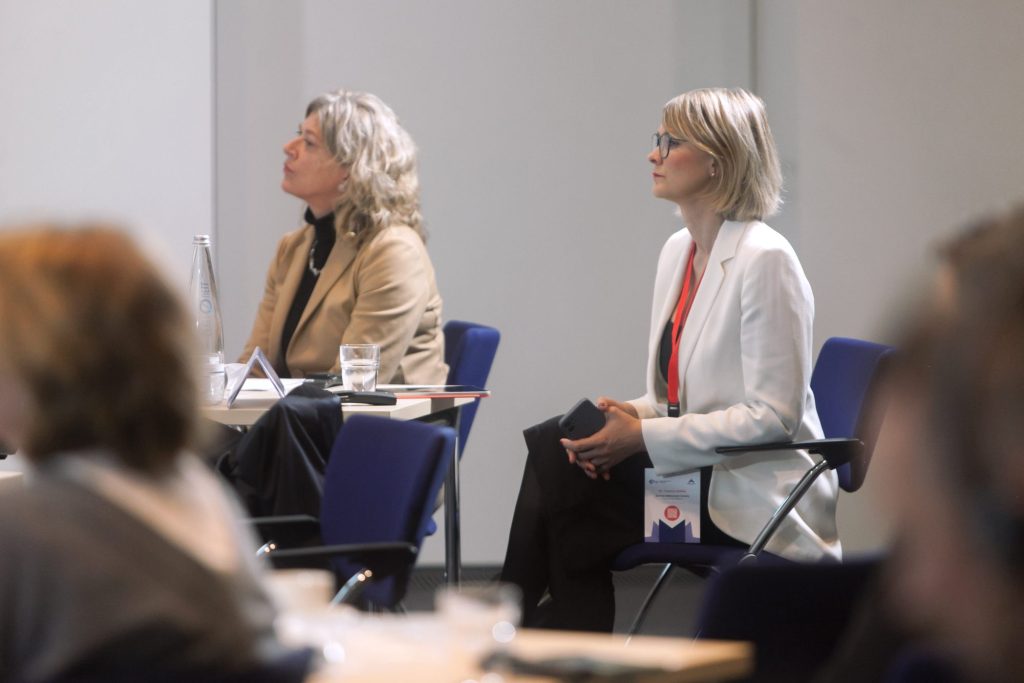

Abraham noted that he often hears about different conflicting groups within the opposition movement, which, in his view, is counterproductive in the current situation. Focusing on the political impact on various population groups in Belarus, primarily through media outreach, is what, he believes, would be a much more useful utilisation of opposition resources than mutual recriminations and grievances. One of the most important tasks of the opposition today is enhancing visibility and developing visiting diplomacy, i.e. a more frequent presence in the political reality with all its meetings, receptions, conferences, and so on, the parliamentarian believes.
Kryzhanouskaya also shared an opinion that people in Germany generally have no idea about the massive repressions that continue in Belarus and asked what should be done to make the German media write about Belarus again. Abraham’s answer left no illusions: the politician specified that the media jump from one topic to another, and it is impossible in a democratic society to control it: “Of course, it may be frustrating for people from Belarus, but the media function the way they do”.
Schmidt, in turn, shattered another conceit, this time about political prisoners and the possibility of their immediate release in exchange for some bonuses for Lukashenka: “Political prisoners in Belarus are not a bargaining tool anymore. Today, we cannot enter into a dialogue with Lukashenka because of his support for Russia in the war”.
Panel discussion II – Economy
Current State of the Economy in Belarus, Impact of Sanctions and Prospects for Development
The speakers in this panel included: Yulia Miadzvetskaya (doctoral researcher, University of Tübingen), Dr Lev Lvovskiy (Research Fellow, BEROC), Sierz Naurodski (Representative in Baltic countries, ABBA), Robert Kirchner (Senior Advisor and Deputy Team Leader at the German Economic Team). The discussion was moderated by Stefan Kägebein (Regional Director Eastern Europe, German Eastern Business Association).
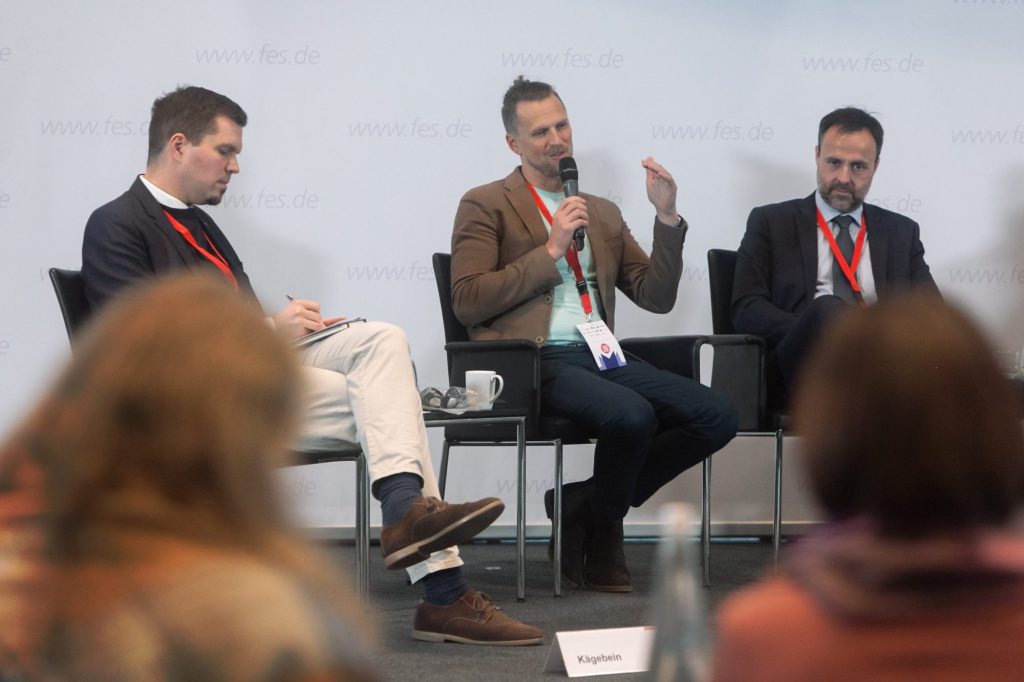

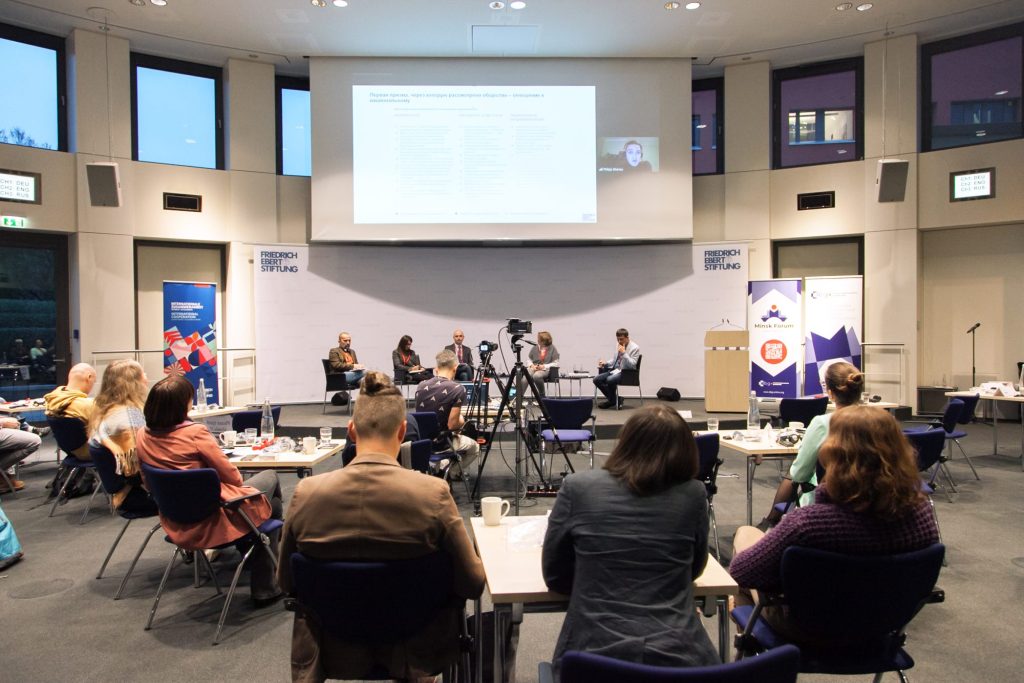

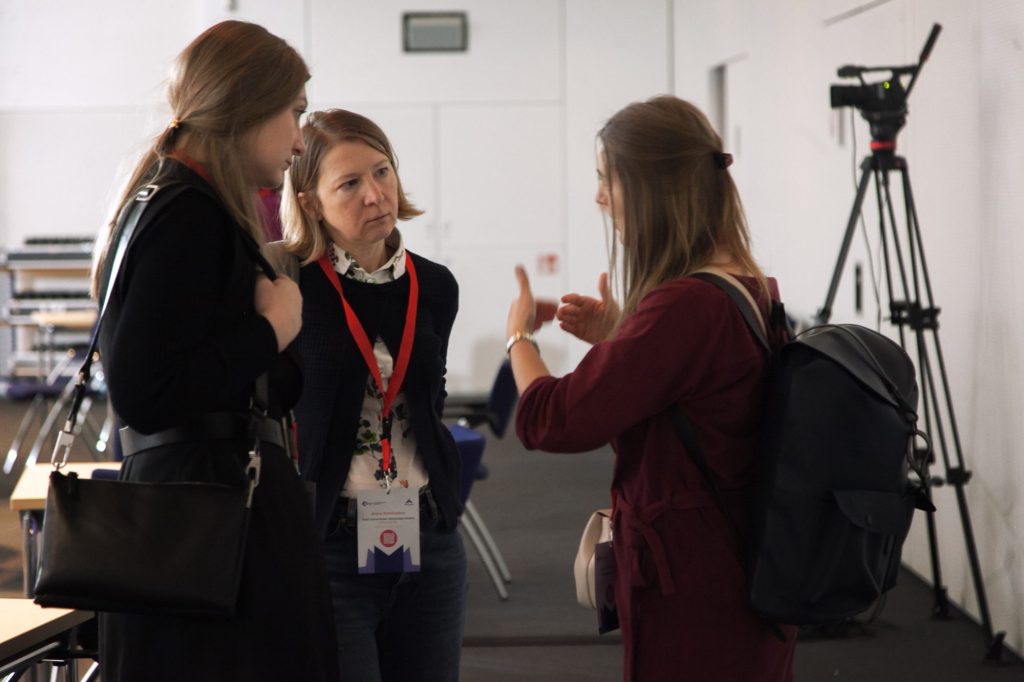
Without going around the bush, Mr Kirchner immediately pointed out that the economic situation in Belarus was disastrous. The GDP dropped by 4.7%, just like in the 1990s. The only two productive sectors at the moment are agriculture, where the situation depends on the harvest that cannot be controlled, and the IT industry, which is still in stagnation despite the observed expansion, with growth rates dropping significantly.
Mr Kirchner’s predictions for the future are also bleak — even more stagnation in all areas is likely to be seen. The price freeze imposed by Lukashenka does have its short-term positive effect, but it is not a long-term solution: store shelves are emptying and exports are increasing only with one partner — Russia. As for the exchange rates, according to Kirchner, the situation is rather stable, and the microfinance situation looks the most encouraging against the background of everything else.
Dr Lvovskiy believes that in 2021, Belarus experienced a kind of miracle in terms of foreign trade because, for some reason, sanctions did not work and there was a positive trade balance. In 2022, the sanctions finally took effect de facto. As for the qualitative trends in the development of the Belarusian economy, Dr Lvovskiy outlined the following:
- The state attempts to introduce and increase mini-taxes — for example, for picking mushrooms, collecting data, or crossing the border. At the same time, there is no increase in the general big taxes — Lukashenka tries to avoid it as much as he can.
- Belarus is losing its status as an IT country. This sector has always been small compared to others, but it has been constantly growing, posing attractive employment opportunities and giving hope for the future. Over the last year, some 11,000 IT specialists left the country, which makes up 7-10% of the total number of people employed in this field.
- Economic policy is characterised by instability — people do not feel optimistic about the future, and they do not buy things. Business people are skeptical: they observe high inflation and are not sure about tomorrow, because the rules of the game are constantly changing and the prospective regulations of the National Bank, the banks that give loans, and other major financial operators are not clear.
- The oil business, which faced a critical situation back in April-May, has somewhat recovered, most likely due to the support of Russia. Potash is sold only to China. At the same time, according to opinion polls — and this is what Dr Lvovskiy considers an unexpected result — people say that they feel good about the current economic situation because they expected a complete collapse, but the failure was only partial.
- A mass of information is concealed by the government. Even the situation with the budget is unknown because the National Bank has stopped publishing its reports. In general, the state tries to produce positive news and convince the population that the situation is controlled — not only stable but actually improving.
Miadzvetskaya provided a more detailed presentation of the situation with economic sanctions imposed on Belarus and called what it a “sanctions mini-revolution”. The listing criteria have recently been updated. The EU finally began to include those who support Russian aggression or the use of migrants as a hybrid war weapon.
While noting the positive effect of these sanctions in terms of putting economic pressure on the regime, Miadzvetskaya believes that the EU will have to work hard to calibrate the sanctions to be able to distinguish between ordinary Belarusian citizens who are primarily affected by the sanctions and those who permanently support the authoritarian regime as well as have close business affiliations with it; and to differentiate between sanctions against Belarus and Russia, as many of them are now overlapping.
Naurodski supported Miadzvetskaya’s ideas about the necessary calibration of sanctions and cited as an example the situation with foreign banks, which are very reluctant to open accounts for Belarusians abroad. By doing so, according to Mr Naurodski, the banks demonstrate that they do not make a difference between the people loyal to the authoritarian government and political dissidents who have to start their life from scratch in new countries.
Another shade of the Belarusian economic trouble is the energy crisis. “Belarus is suffering from an energy crisis. For now, the state has oil and gas, and people can heat their homes, but there are certain problems”, Mr Naurodski is convinced, because Ukraine has now stopped buying oil from Russia, but still buys it from Belarus. Belarus, in its turn, buys oil from Russia and resells it to Ukraine. When the war is over, Ukraine, according to Mr Naurodski, will start buying oil from Azerbaijan or the EU, and this will further marginalize the already unpopular Belarusian exports.
Panel discussion III — Society: Understanding Belarus — Belarusian Identity, incl. Presentation of a New Study
Philipp Bikanau (independent sociologist), Henadz Korshunau (Senior Analyst at the Center for New Ideas), Andrei Kazakevich (Director, Institute for Political Studies “Political Sphere”), Maryia Rohava (Independent Researcher specialising in Belarusian area studies), and Natallia Vasilevich (theologian, moderator of Christian Vision for Belarus working group) were invited for the discussion. The talk was moderated by Zmicer Lukashuk (Editor at Euroradio, author and moderator of the programme on national identity “Idea X”).
To set the tone for the discussion, a recent sociological research “Belarusian National Identity in 2022: Experience of Quantitative Research” by Bikanau, supported by the Friedrich Ebert Foundation, was presented. The main conclusions of the research are as follows:
- Belarusian identity is at a crossroads with socio-political conflict and contestation over values that strongly influence society’s national projects.
- Foreign policy preferences stem from attachment to one of several national identity projects. Despite this, Belarusians show a strong commitment to neutrality.
- The nature of the Belarusian regime and its foreign policy orientation will deepen divisions within society. The ways Belarus overcomes these divisions will shape the country’s future image.
Describing the changes that have occurred in religious communities since 2020, Vasilevich noted that vertical stratification is observed, and grassroots initiatives and specific individuals, rather than religious institutions per se, are beginning to play a more significant role. She also noticed that horizontal connections are being established within religious communities, similar to urban protest movements, but distrust of one another is growing within units such as parishes.
Kazakevich criticised Bikanau’s study and shared insights from a yet unpublished study that he had been involved in conducting, namely:
- The increase in migration from Belarus to the EU started in 2017-2018, rather than in 2020. In the last five years, people have been leaving Belarus mainly for economic reasons. Media attention to political migration creates a false impression of the overall scale and causes. The absolute majority of migrants are not politically or socially active people, but just workers in the logistics, construction, and manufacturing industries. The number of IT specialists who decided to leave Belarus is growing, but on the whole, quantitatively it is not a large group of people.
Kazakevich also questioned the fact that all those who left the country are opponents of the regime, and is convinced that diaspora narratives will soon have to be revised to make them systematic and aimed at different categories of migrants.
Answering Lukashuk’s question about whether it is true that many Belarusians in emigration avoid full integration into the local society and rather stay in the circles of “those who have left”, Kazakevich replied that he shares this assessment: while previously people used to leave following the offer of their employer, now they migrate with the assistance of Belarusian communities. He also believes that, to some extent, it can be seen as shaping a Belarusian identity, and is enabled by the support infrastructure in place that covers a wide range of needs: from choosing a bar to getting a job.

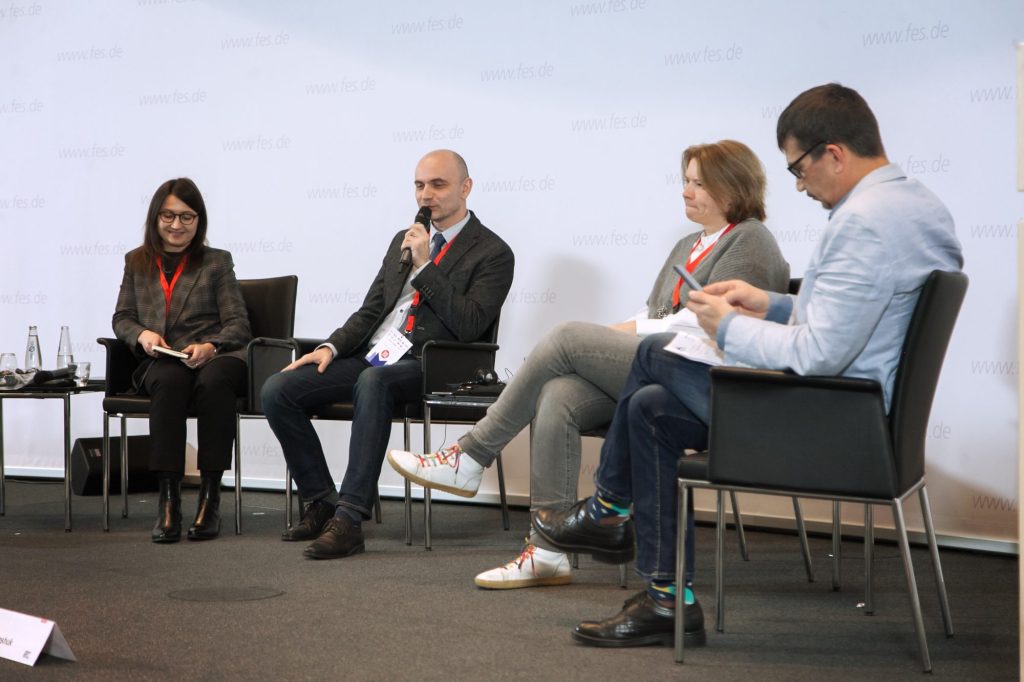

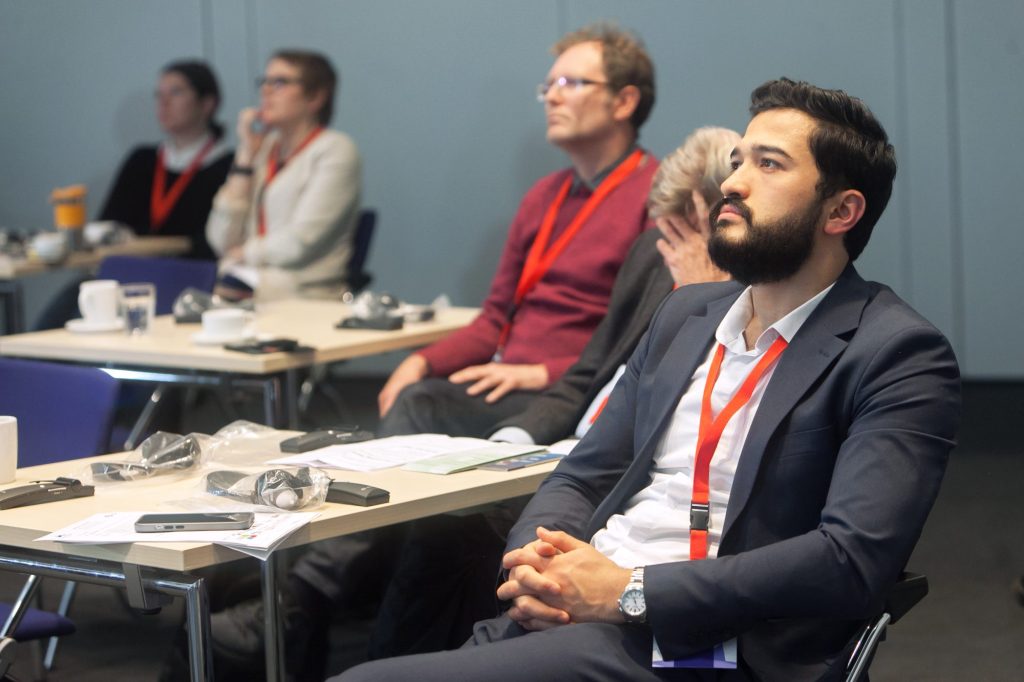

Summarising the results of the conference and answering the question stated in the title, it would be reasonable to claim that Russia’s influence on Belarus is still significant. By making the territory of Belarus available for Russian military strikes against Ukraine, Lukashenka drags the country into war and makes it an even bigger pariah on the world political scene, which only aggravates the deplorable state of the economy that is struggling to survive — largely thanks to the monetary injections from Russia and preferential prices of energy resources. Should Ukraine win the war, all possibilities for the current government of Belarus to somehow improve its political image will vanish — the country is likely to face an even bigger crisis. Many people have already chosen to leave, and researchers say the reasons for this departure are a mix of politics and economy.
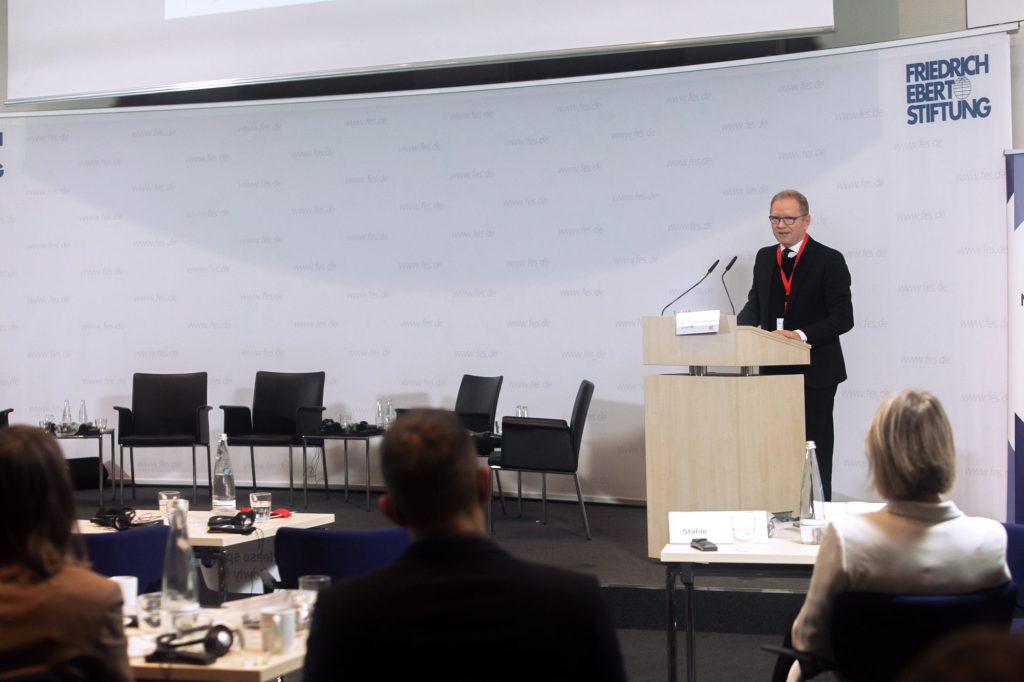
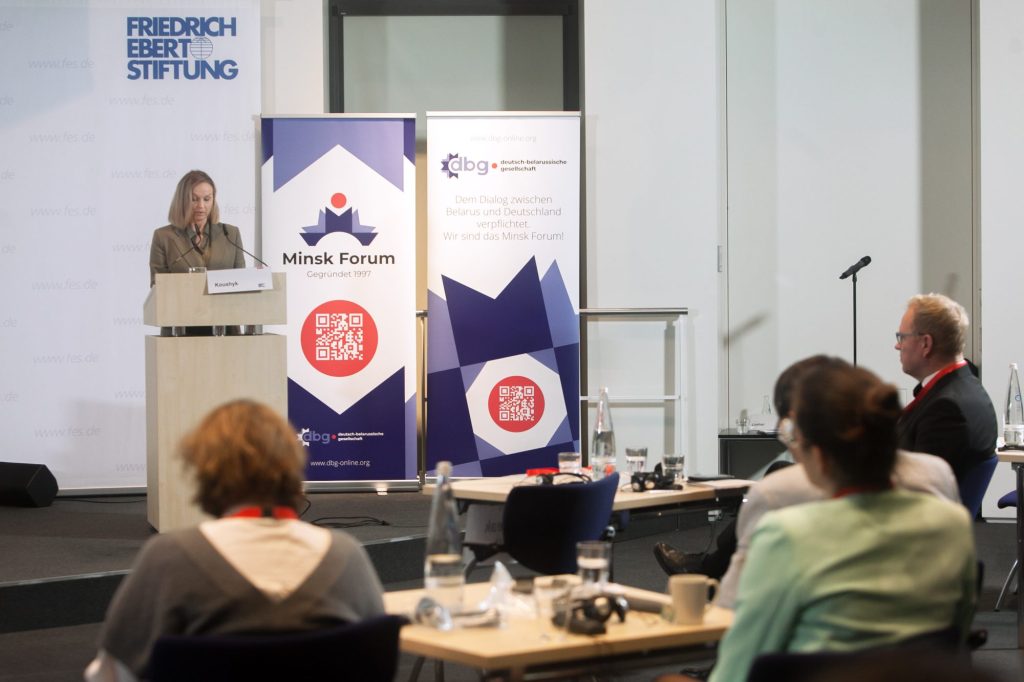

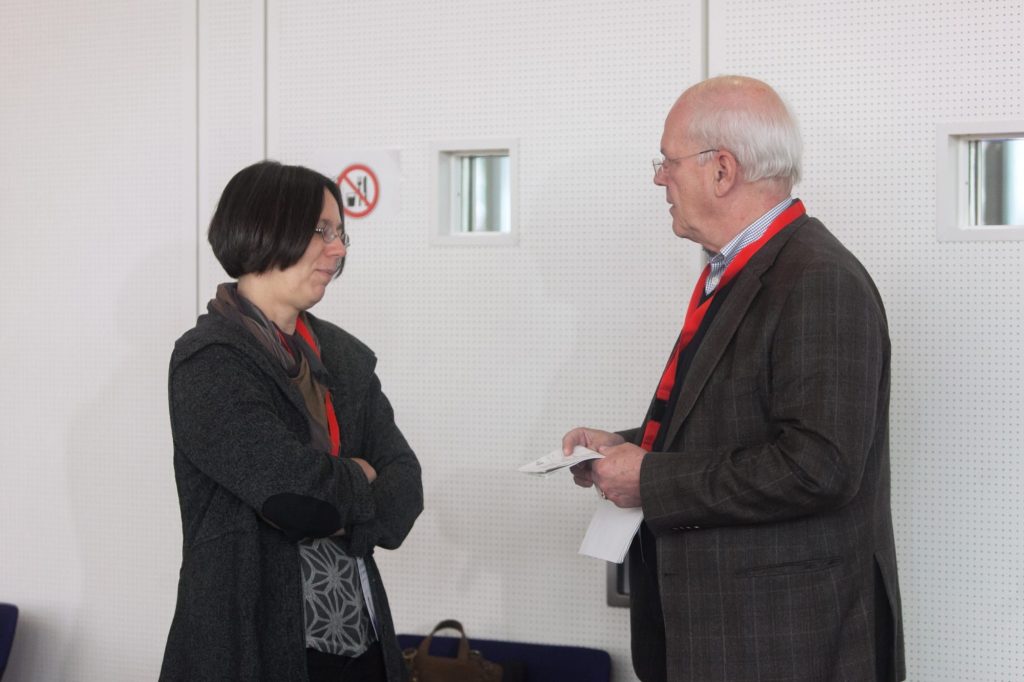
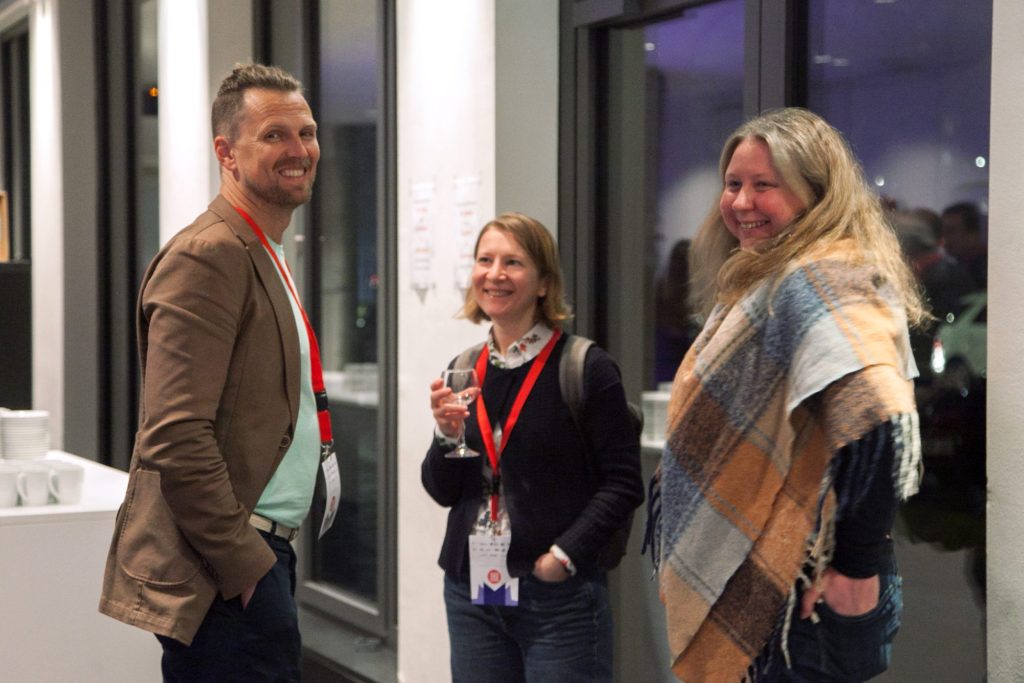
Germany continues to assist the Belarusian struggle for democracy in various ways: democratic forces and civil society structures receive support for their activities, the German Embassy still works in Minsk and provides an opportunity to apply for visas — both humanitarian and Schengen ones; German embassies in other non-European countries readily accept applications from Belarusians for humanitarian visas.
However, one should not count on more: the German government does not intend to negotiate the release of political prisoners with Lukashenka, and entry on work visas will not be facilitated in the near future either, not least because of the large influx of refugees from Ukraine who also want to take vacant jobs.
As for the efforts of the Belarusian democratic forces, the EU in general and Germany in particular, in return for their financial support, expect a clearer political agenda, where an important part is assigned to supporting Ukraine’s fight against imperial Russia. However, due to the ever-present internal conflicts, as well as the inability to directly influence the daily life of Belarusians who live inside the country, there is a risk that these forces will lose much of their support among the population and become marginalised — therefore, the whole hard-won road to freedom will have to start from scratch one day.